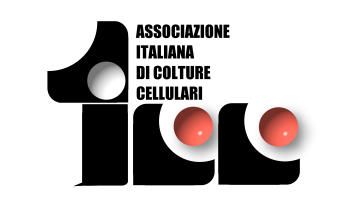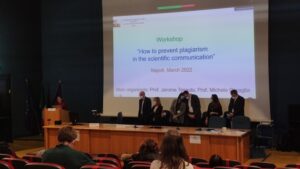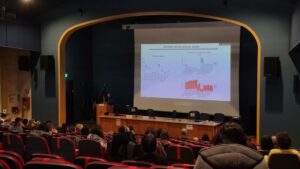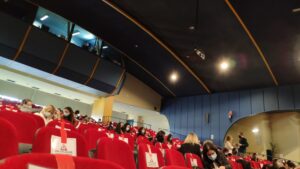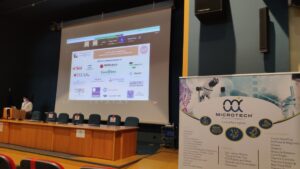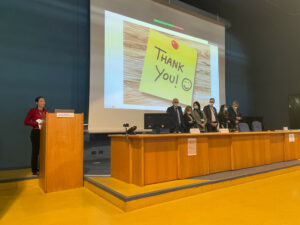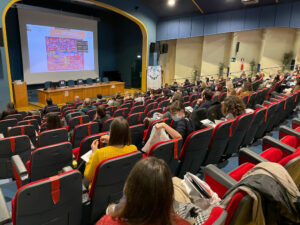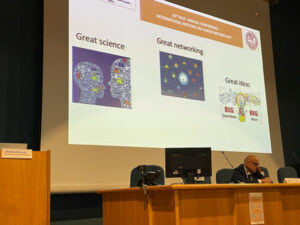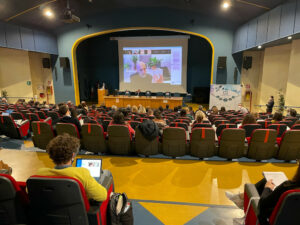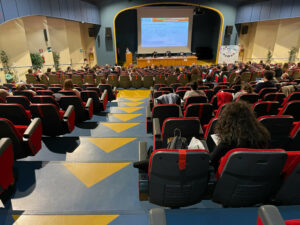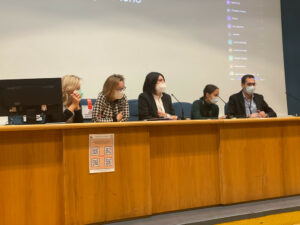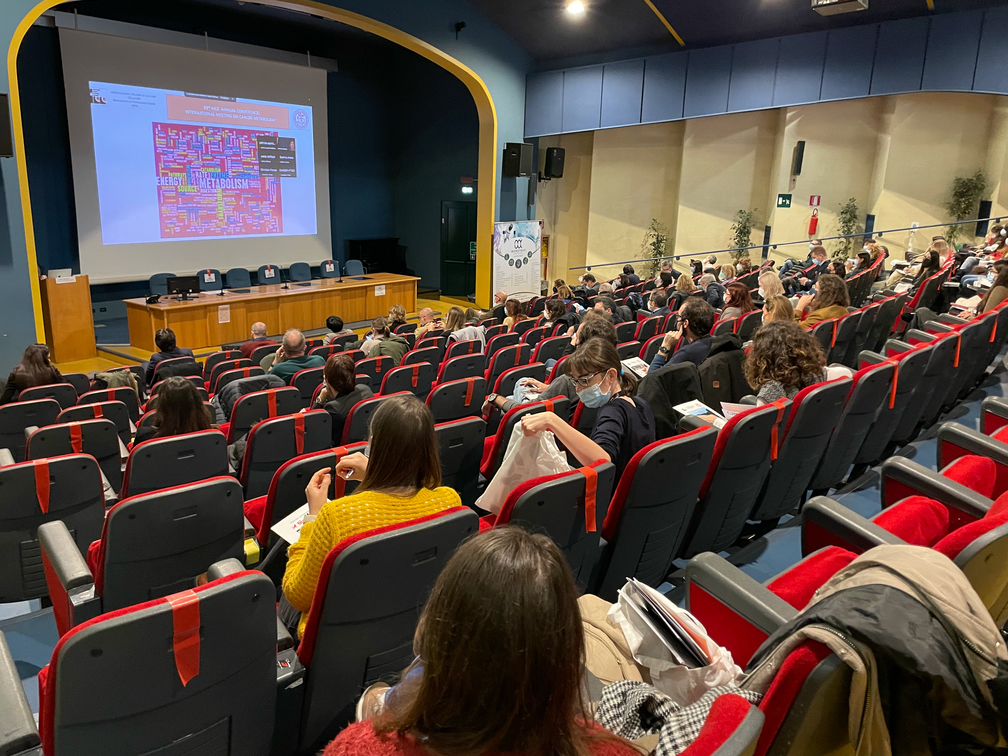 The 33rd AICC Annual Conference was an international meeting on cancer metabolism: “Dissecting metabolic circuitries in cancer cells and microenvironment: how to learn from bad lessons to develop new therapeutic opportunities”, held in Torino on 22-24 November 2021.
The 33rd AICC Annual Conference was an international meeting on cancer metabolism: “Dissecting metabolic circuitries in cancer cells and microenvironment: how to learn from bad lessons to develop new therapeutic opportunities”, held in Torino on 22-24 November 2021.
The meeting offered the opportunity to make a fantastic scientific travel through single enzymes and metabolites, pathways and crosstalk between cancer cell and tumor microenvironment, analyzing the implications in tumor onset, progression, metastases and therapy resistance. Understanding the basis of the tumor metabolic heterogeneity, dissecting the circuitries linking the genetic and metabolic aberrations of cancer cells with abnormalities in the extracellular matrix, cancer-associated fibroblasts (CAFs) and immune-infiltrating cells may help to identify new stratification markers and new druggable targets for unresponsive tumors.
The meeting was opened by Prof. Christian Frezza, the Alexander von Humboldt Professorship 2021 Awardee, who explained how the loss of fumarate hydratase could be a good paradigm of metabolic alterations determining oncogenesis. Session I (“Emerging metabolic pathways in cancer initiation and progression”) was dedicated to targeting specific enzymes, cofactors or metabolic pathways to prevent tumor progression and/or find new therapeutic strategies. Session II (“Metabolic rewiring in tumor progression and response to therapy”) had a strong focus on mitochondria as drivers of tumor progression and on the possibility of rewiring mitochondrial metabolism as novel anti-cancer strategies. The enormous plasticity of cancer cells to adapt to unfavorable conditions, caused by heterogeneous clones withing the tumor mass, different degree of stemness and epigenetic events was deepened in Session III (“Dealing with complexity: metabolic plasticity and heterogeneity in cancer progression”). Through Sessions IV and V (“Disrupting the bad liaisons between tumor and its microenvironment”) dissected the crosstalk based on inflammatory cytokines released by cancer cells and/or immune-infiltrating cells, as well as the crosstalk of lactate between cancer cells and CAFs, with the goal to disrupt pro-tumorigenic and pro-invasive circuitries, and improve the response to the current treatments. The final session (“From the complexity of cancer cell metabolism toward a new therapeutic era”) presented innovative tools based on computational methods, 3D-models and OMIC-techniques as starting points to discover metabolic vulnerabilities. The next steps forward a new therapeutic era based on metabolic modifiers as adjuvant agents in cancer treatment were traced by the closing lecture, held by Prof. Eyal Gottlieb.
24 top-class speakers (12 working in abroad Institutions and 12 coming from different Italian research institutions) gave their lectures. We sincerely thank all of them for the adhesion to our meeting: the excellent scientific content of their lectures produced great participation, triggered stimulating discussions and put the basis for novel trans-disciplinary collaborations.
Because of pandemics, this was the first AICC event in presence after two years. The choice of the hybrid modality, thanks to the support of Xenia Eventi, allowed the most flexible attendance for both speakers and participants. As AICC Board, we are proud of the enthusiastical adhesion to the meeting: 151 researchers followed the meeting in presence and 57 researchers were connected online. We highly appreciated the participation of early career investigators, from which we received the submission of 50 abstracts. Among them, 10 abstracts were selected as oral communications and gave additional inputs to the meeting.
Also, the latest innovations in studying cancer metabolism were presented by relevant companies in 8 technical talks during the meeting. The event was supported by the unrestricted grant from 15 companies, 2 PhD Schools of University of Torino and the Journal of Experimental and Clinical Cancer Research. Thanks to this supporting network, AICC continued its long tradition of awarding the best works presented by young investigators, attributing 3 prizes for the best oral communications and 8 prizes for the best posters.
A big THANK to all the participants!
We firmly believe that we will be together and even more numerous in the next initiatives planned by AICC in 2022: stay tuned!
Best oral communication awards
1) Alessandra Fiore, Max Planck Institute, Germany, AICC prize
2) Myriam Hsu, University of Torino, Italy, JECCR prize
3) Anna Lucia Allocco, University of Torino, Italy, PhD Schools of University of Torino prize
Best poster awards
1) Alessia Stefanelli, Medical University of Vienna, Austria, AICC prize
2) Eleonora Lama, University of Bologna, Italy, AICC prize
3) Chiara Tammaro, University of Campania Luigi Vanvitelli, Italy, AICC prize
4) Cristian Andres Carmona-Carmona, University of Verona, Italy, AICC prize
5) Martina Chiu, University of Parma, Italy. AICC prize
6) Alessandro Sacco, University of Catanzaro Magna Grecia, Italy, AICC prize
7) Annamaria Di Fiore, University of Roma La Sapienza, Italy, AICC prize
8) Muhlis Akman, University of Torino, Italy, PhD Schools of University of Torino prize
